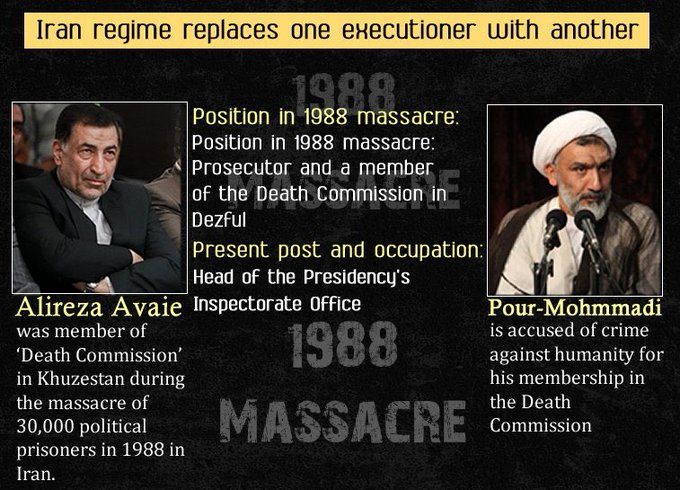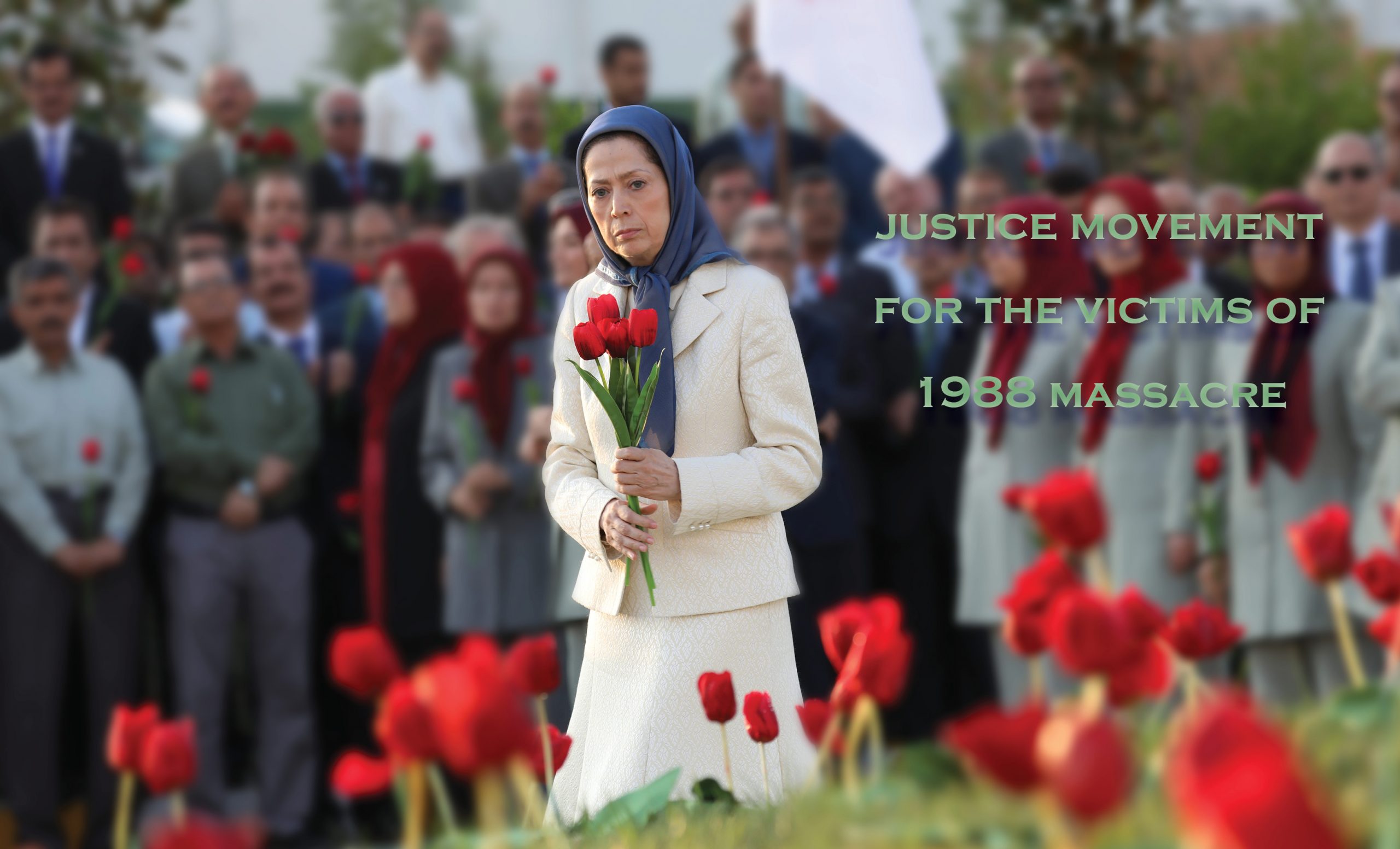The Iranian opposition movement has been fighting to have the massacre of political prisoners in Iran in 1988 investigated thoroughly by an international body for many years. The scale of the massacre and the identity of those who were involved in ordering the 30,000 executions have meant that relying on an impartial inquiry by the Iranian government cannot be trusted. How can you trust a dictatorship?
Maryam Rajavi: Official UN experts describe the 1988 massacre as a "crime against humanity" https://t.co/zK53zjSW6y
— Maryam Rajavi (@Maryam_Rajavi) December 11, 2020
Now, a group of U.N. human rights experts has written a letter demanding a clear answer to what happened and who was involved 32 years ago.
The facts remain clear. In 1988, the People’s Mojahedin Organization of Iran (PMOI / MEK Iran), was a thorn in the side of the theocratic dictatorship which seized power after the revolution against the Shah in 1979 and still holds power today. Protests in Iran were harshly put down and many thousands of supporters of the (PMOI / MEK Iran) were arrested, tortured, and charged with spurious offenses.
They were then sentenced by so-called “death commissions” to death. Executions followed swiftly, with an estimated 30,000 activists and supporters slaughtered, then buried in mass unmarked graves. Family members of the executed prisoners were never told and the vast majority of them still do not know where their loved ones are buried.
The justice movement is bearing fruit on the international front. The era of silence and ignoring of the clerical regime's vast crimes is over. #1988Massacre #Iranhttps://t.co/mwaCaGEwly pic.twitter.com/SgA1Hzdn5b
— Maryam Rajavi (@Maryam_Rajavi) December 12, 2020
The letter from the U.N. human rights experts was made public just before International Human Rights Day on December 9th. The Iranian regime had refused to answer questions posed to it by the experts who composed the letter for the preceding 60 days.
Mrs. Maryam Rajavi, the President-elect of the National Council of Resistance of Iran (NCRI), has been leading the campaign to put pressure on the Iranian regime because of their appalling human rights record. She hailed the release of the letter as a victory for the Iranian people and the resistance movement. “The justice movement is bearing fruit on the international front and the era of silence and ignoring of the clerical regime’s vast crimes is over,” she said.
The letter warns the regime in Iran about continuing to deny its role in the massacre and subsequent violent suppression of human rights and its attempt to protect the people who now hold important positions in the regime yet played a part in ordering the deaths of the 30,000 prisoners in 1988.
After 32 years, UN experts described the #1988Massacre of political prisoners in #Iran as a "crime against humanity. "The justice movement is bearing fruit on the international front. The era of silence & ignoring of regime's major crimes is over. pic.twitter.com/9Dlplf4edR
— Maryam Rajavi (@Maryam_Rajavi) December 13, 2020
Individuals involved in the massacre include Ebrahim Raisi, the head of the judiciary, Mostafa Pour-Mohammadi, a current advisor to Raisi, and current justice minister, Alireza Avaya.
Some of those who were involved in the massacre arrogantly defend what happened. For example, pour-Mohammadi was recorded saying to the state-run Mosalas magazine in July 2019: “We have not settled the score with the (PMOI / MEK Iran). We will discuss these matters after we eliminate them. We have to deal with each and every one of them. We are not joking.”
Pour-Mohammadi was one of the “Death Commissions” that took minutes to come to a conclusion about the penalties imposed on the condemned prisoners.

The signatories to the letter said; “We are concerned that the situation may amount to crimes against humanity.” They also said that they would “call on the international community to take action to investigate the cases including through the establishment of an international investigation.”
In the past, although the massacre was recognized by the international community, measures taken were half-hearted and more or less depended on the regime that ordered the executions to investigate itself – an impossible and impractical idea. As Mrs. Rajavi has said a number of times, appeasing the guilty party only leads to it repeating its offenses, each time with more impunity.
The Iranian regime, despite overwhelming evidence to the contrary, has always denied its involvement in the massacre, even to the extent of denying that there had been any mass executions at all. The UN General Assembly, despite a limited amount of hand-wringing, has basically turned a blind eye to the regime’s murderous endeavors.

The issue of the 1988 massacre has been brought up time after time by the Iranian resistance and occasionally there has been limited action by the UN. On November 2nd, 1989, the UN Special Representative stated that the mass killings in Iran were a fact, not just an allegation. There was still no follow up. In the meantime, the emboldened regime promoted the perpetrators of the massacre, many of whom retain important positions within the theocracy, including those mentioned above. The regime also intimidated family members of the dead and did what they could to destroy any physical evidence of the mass graves.
“Global policies remained pinned on the hopes of moderation inside the regime through regime president Ali Akbar Hashemi Rafsanjani,” explained Mrs. Rajavi.
The UN special rapporteur was allowed to visit Iran’s prisons in 1995 after much pressure from the NCRI. However, the regime continued to deny the existence of the massacre and the whereabouts of those who were executed. Again, nothing more followed until now, when the same issues have been raised by the human rights experts.
Mrs. Rajavi has called for the case to be referred to the UN Security Council and an international tribunal. She says that the regime’s leaders, including Supreme Leader, Ali Khamenei, must face justice for the crimes they have committed against the Iranian people. The investigation into the massacre must now be led by an impartial and independent international authority.
and People’s Mojahedin Organization of Iran – MEK IRAN – YouTube









